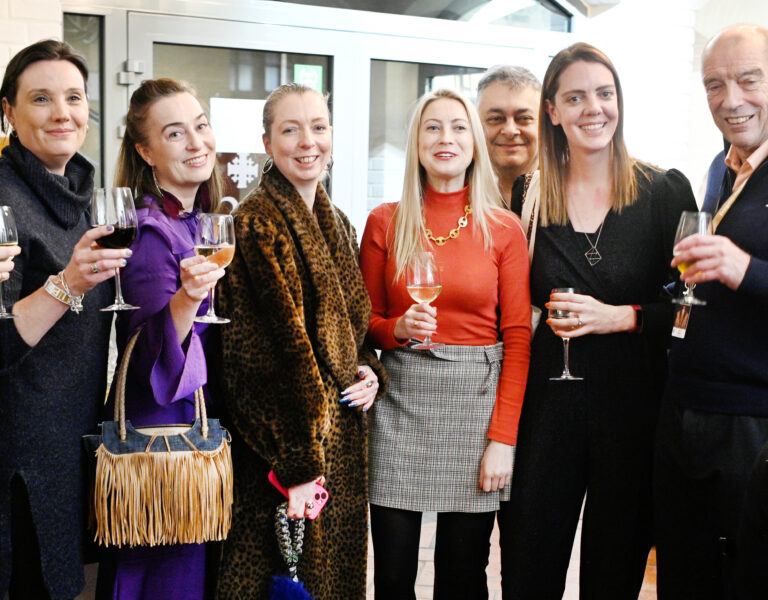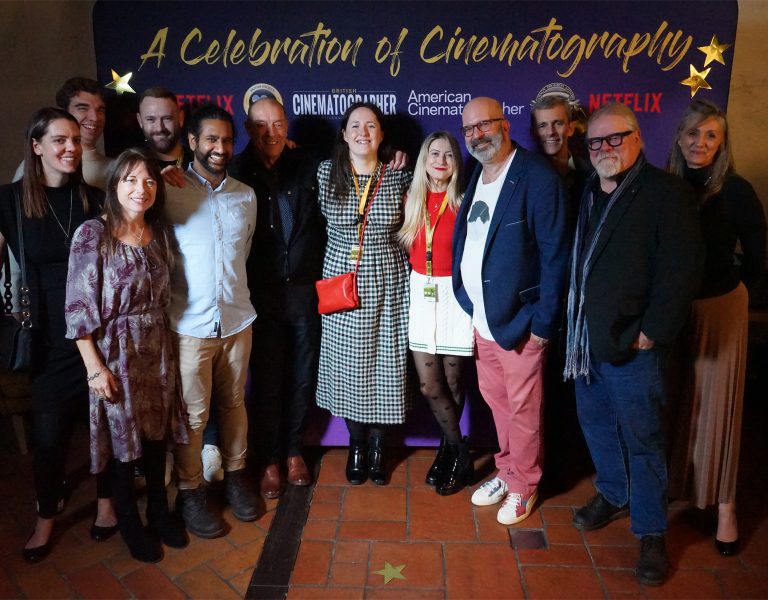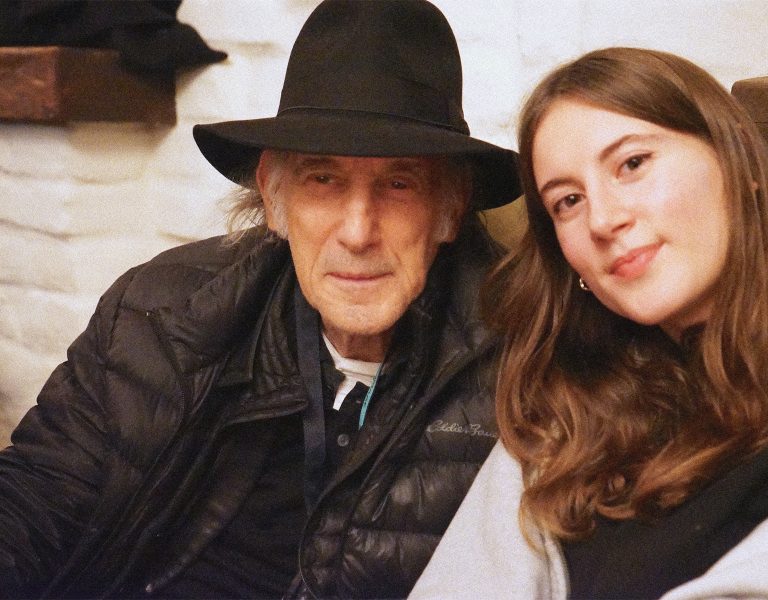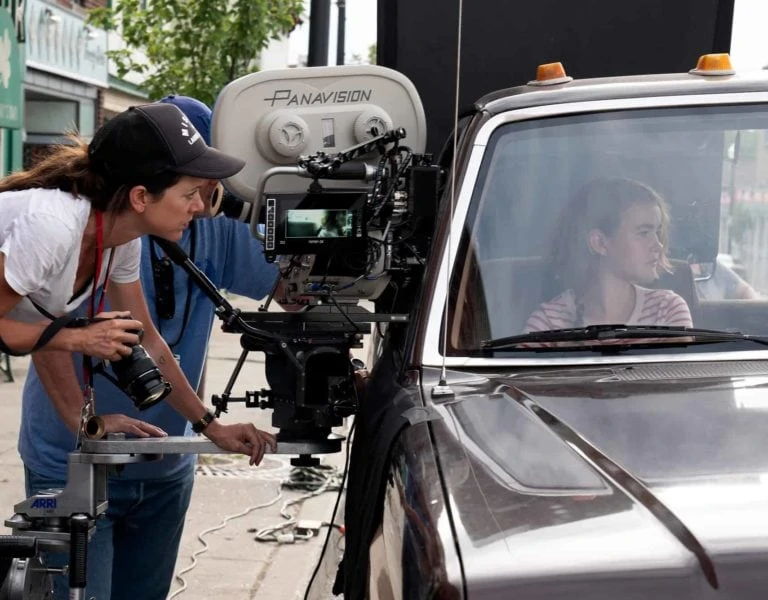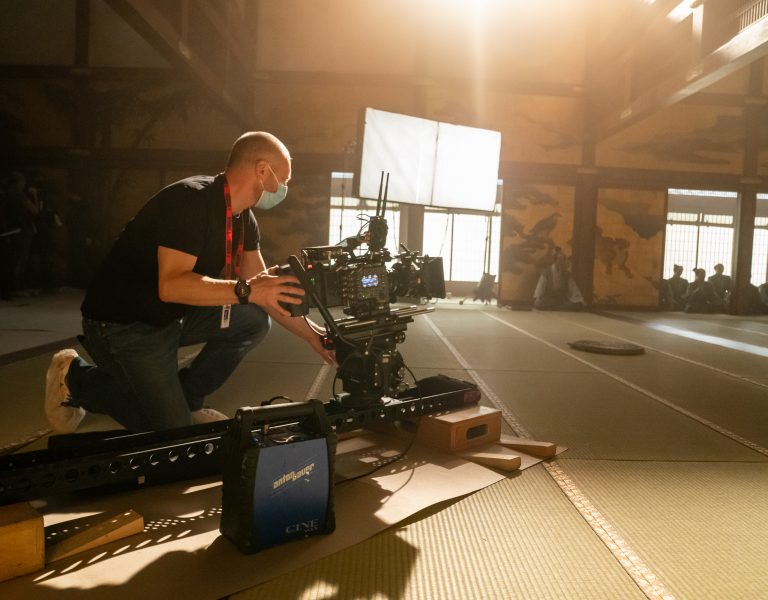THE ROAD TO OPPORTUNITY
First Steps Cinematography, founded by Fabian Wagner ASC BSC, is breaking barriers in filmmaking. In 2024, it won the BSC Achievement Award for promoting emerging talent.
The film industry, especially in the camera department, has long been criticised for its exclusivity. Many entry-level roles are unpaid, making them inaccessible to those without financial privilege. However, in a corner of the sector where artistry meets technology, a quiet revolution is taking place.
Fabian Wagner ASC BSC founded First Steps Cinematography over a decade ago as “a simple, informal initiative” when industry opportunities were scarce.
At its core, First Steps is a mentorship programme that goes beyond traditional training. It offers aspiring filmmakers a paid apprenticeship-like experience on high-end television and feature film sets, pairing them with industry veterans who provide hands-on guidance. Wagner’s vision is bold: to create an accessible talent pipeline that reflects the society films aim to portray.
Now, it’s bearing fruit from years of hard work and dedication.
“During the production of HBO’s House of the Dragon series one, 12 mentees joined the camera crew for principal photography,” Wagner says. “These placements weren’t token gestures; they were integral to the production process, offering the mentees hands-on experience while adding value to the overall workflow.”
A mentee in the camera team is an aspiring cinematographer, camera operator or long time focus puller, gaining hands-on experience and training under the guidance of experienced professionals. By incorporating a mentee position alongside the camera trainees, First Steps ensures that aspiring filmmakers can focus on learning without the pressure of additional duties. This setup provides an ideal environment for mentees to develop practical skills, build industry knowledge, and grow professional networks, all essential for future careers in cinematography.
Aga Szeliga ACO, joined by Mitch Payne (first AC) and Andrea Bigger (ex-LFF), form a powerhouse team driving the project forward. “One of the most rewarding things when I joined House of the Dragon was to support Fabian in his efforts to create an inclusive camera department,” she says. What’s more, it was the first time she’d heard of a studio offering a paid internship.
“It’s really impressive to know that HBO was very supportive of First Steps, understanding the need for creating paid training opportunities which embraced diversity,” she explains. “It makes a big difference to be paid for your time, which makes the internships accessible to everyone, including people from less privileged backgrounds. It also shows that any DP can use their position of leadership to encourage studios and productions to promote positive change in the industry.”
Wagner, whose credits also include Game of Thrones and The Crown, says ”supporting people, trying to give something back, and especially helping people to get a break in this industry” was always something he was keen to achieve.
The second season of Sherlock marked the first time Wagner brought on two mentees – who worked alongside the usual trainees – to provide additional mentorship and hands-on experience. Unlike the trainees, who are more focused on traditional training roles, the mentees are integrated into the production process and are treated as active members of the camera team.
“It worked well, and so I continued pushing to bring mentees on board for most of my subsequent productions, even when shooting abroad,” he adds. “At the same time, I became a mentor for BAFTA and, later on, for the ASC. Fortunately, even though our industry has a very long way to go before it can be considered open to people from different socio-economic, ethnic or gender backgrounds, there is now a growing network of support schemes.”
First Steps relies on industry support to provide paid work placements for mentees, ideally lasting at least three weeks. Studios are encouraged to offer these opportunities, with support provided for negotiations and logistics. The programme advertises placements on social media, selecting mentees through an application process and offering continued career guidance.
How the industry can help
The growth and sustainability of First Steps depend on support from film studios and production companies. Wagner and his team are calling on industry leaders to provide paid placements for mentees and encourage productions to take on at least one participant from the programme.
Wagner’s ultimate goal is to see programmes like First Steps become a standard part of the industry. He envisions a world where more voices are not just welcomed but celebrated, where the barriers to entry are replaced with bridges to opportunity.
“This scheme is different from many others – it’s run by us, the crew,” Wagner adds. “We have spent most of our working lives on set, we know the industry and we’ve been through the same period that most young people find themselves at. We choose the candidates, we support and train them ourselves, with a group of people who very much have the same mindset, or we pass them onto someone who we know will give that support. Overall, I don’t think there can be enough support schemes and I think it’s great that there are so many popping up everywhere. The more there are, the more people will get the help they need to break into and thrive within what we know used to be a very closed off industry.”
Will your studio be part of the change? The future of cinematography is waiting.
For additional information, visit www.firststepscinematography.com
